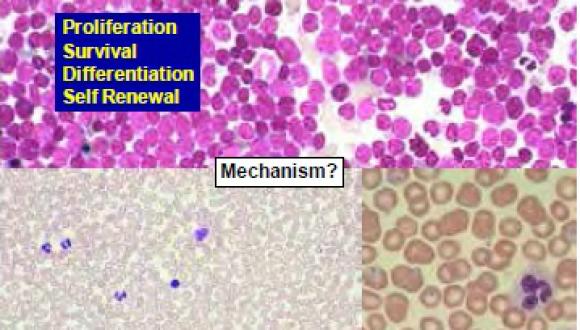Basic and Translational Research of Childhood Malignancies and Leukemia
Prof. Shai Izraeli, M.D
Division of Pediatric Hematology and Oncology, Schneider Children's Medical Center;
Department of Human Molecular Genetics & Biochemistry, Sackler Faculty of Medicine
Prof. Shai Izraeli, M.D
Division of Pediatric Hematology and Oncology, Schneider Children's Medical Center;
Department of Human Molecular Genetics & Biochemistry, Sackler Faculty of Medicine
We focus on patient-driven basic research into the pathogenesis of childhood leukemia and cancer. We harness advanced molecular and cellular biology technologies utilizing in-vitro and in-vivo models with the ultimate goal of improving the care of children with cancer.
Our research is divided into two major topics:
- Basic, translational and clinical research of leukemia.
- The role of SIL (STIL) protein in mitosis, centrosomal biology and cancer.
Cancer is the deadliest disease of children and leukemia is the most common childhood cancer. We are interested in the fundamental question how normal blood development is diverted into leukemia. What are the genetic and biochemical abnormalities that block cell differentiation, enhance proliferation and survival and confer the unique stem cell properties of self renewal to leukemia stem cells? We focus on chromosome 21 because of the mysterious association of leukemia with Down Syndrome. We utilize advanced genomic technologies, cell based assays of transformation of primary human and mouse stem cells, mouse models including transgenic, transplantation and explants of human leukemia. Our recent discoveries of the major involvement of the TSLP-IL7R-JAK2 pathway in leukemogenesis have lead to clinical trials with novel inhibitors of this pathway for high-risk leukemias in children and adults. The spread of leukemia to the brain is a major clinical problem as preventive therapy to the brain consistingof chemotherapy or irradiation causes long term side effects. We are therefore studying how leukemia cells spread to the central nervous system and developing mouse models to study this challenging problem.
We have discovered that SIL, a gene cloned from childhood leukemia, is required for centrosomal biogenesis and for survival of cancer cells. Targeting SIL by siRNA cause cancer cell death at mitotic entry in-vitro and in-vivo. Current research focuses on the fundamental role of the SIL protein in centrosome generation in normal and malignant cells and on developing approaches for its targeting for cancer therapy.


